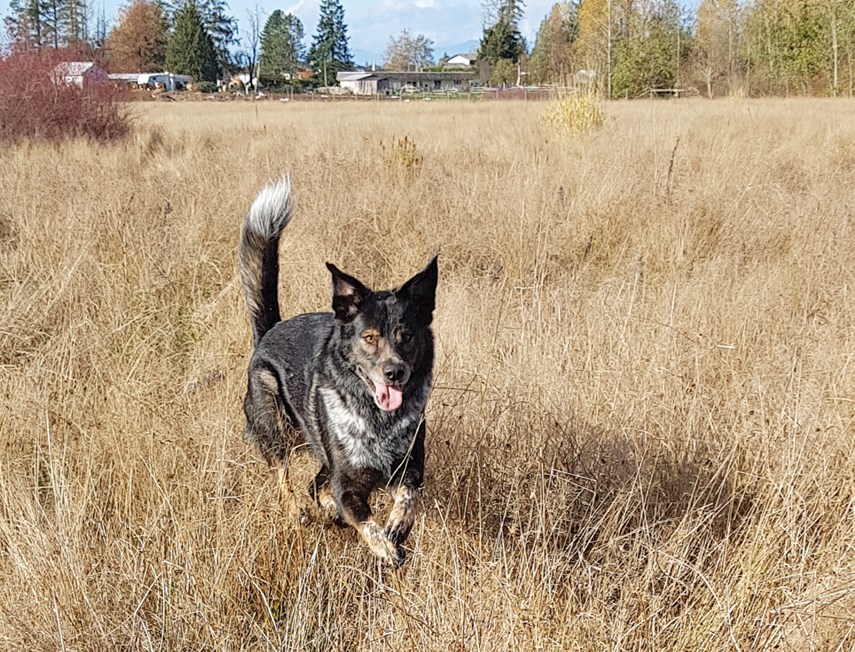I only experimented when I was in high school. Oh wait, there was one other time when I was in Amsterdam. Ohh . . . yeah . . . then there was that year that I lived in Whistler, never mind.
Cannabis is the hot topic of conversation these days so it was only a matter of time before the subject found its way into my column.
But what does marijuana have to do with dogs?
Well, a lot actually.
Dogs can get very sick and in some cases die from ingesting the flower (dried bud that is ground and smoked and contains the cannabinoids that alters one’s perceptions), edibles, hash oil and being subject to second hand smoke, or (heaven forbid ) direct inhalation of the smoke.
There is very little information regarding long-term marijuana exposure in dogs, but there is evidence that they are acutely affected in ways ranging from a mild loss of co-ordination to more severe reactions like seizures, coma and death. It is unclear how much or how little can cause the reactions or to what degree a dog will express them since dogs, just like humans, react differently to marijuana.
So I’ll make my advice short and sweet: be careful of how you use marijuana around your dog. Don’t smoke it around your dog. When you do smoke it make sure you are doing so in a well ventilated area so your dog is not subjected to second hand smoke.
Don’t leave your stash lying around where your dog can easily get to it. Do not leave your edibles within their reach. Dispose of your roaches safely so that your dog cannot get at them and do not toss roaches on the ground in public areas like most smokers do with their cigarette butts. Remember that the world is not your ashtray.
Chastising aside, there is another side to cannabis that can actually help dogs live longer and healthier lives and that is due to a substance derived from cannabis or hemp called CBD (cannabidiol). CBD is the non-psychoactive chemical that will not get your pet high. THC (tetrahydrocannabinol) is the chemical that does create the psychoactive response and will get your pet high.
CBD from hemp is typically sold as an oil and has recently been popping up in pet treats and seems to be a trendy marketing tool. It is hard to say just how much CBD hemp oil is in these commercial products and if it can be of any benefit to your dog. But CBD oil derived from hemp is now found in most health food stores and on the shelves of boutique pet stores because it contains 0.3 per cent THC (or less) and can safely be administered to your dog.
CBD oil derived from cannabis will soon be available (if it isn’t already) at your local cannabis store and may contain higher levels of THC depending on the processing of the plant.
Medicinal cannabis oil has been used to treat dogs who suffer from behavioural issues such as anxiety disorders, hyperactivity, aggression, noise phobias and fears by significantly reducing the expression of these behaviours over a period of time. Also, dogs suffering from physical ailments such as seizures, epilepsy, head tremors as well as pain, digestive issues, inflammation and even cancer have experienced what would be considered miraculous results.
This does not mean that you should be running to your local dealer and dosing your dog with cannabis oil. It is best to speak with your veterinarian about this because medicinal cannabis oil does contain a higher percentage of THC than CBD oil from hemp and thus it is possible for a dog to overdose if it is not administered properly. If your veterinarian is open minded and has some experience and knowledge in the use of CBD, then discuss the matter directly with them.
Currently there is no definitive scientific data on using CBD oil in treating dogs, but overwhelming anecdotal evidence from dog owners looking for an alternative to current pharmaceuticals to alleviate their dog’s conditions is gaining interest. And with the legalization of marijuana it now opens the door for increased interest in research around its uses and efficacy for our four legged companions.
And no, I did not inhale, ever.
Joan Klucha has been working with dogs for more than 20 years in obedience, tracking and behavioural rehabilitation. Contact her at [email protected].



